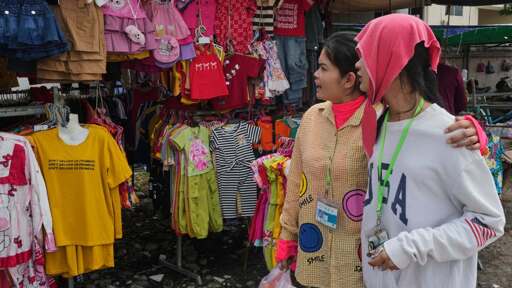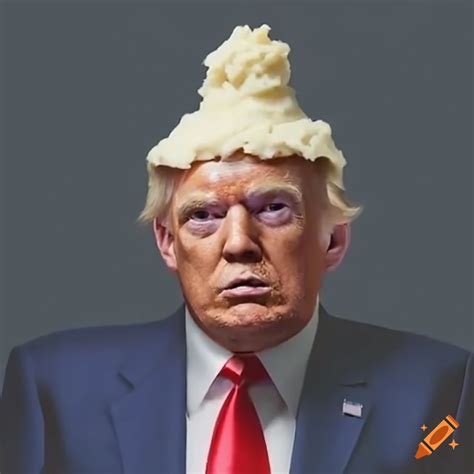NEW YORK (AP) — Sending children back to school in new sneakers, jeans and T-shirts is likely to cost U.S. families significantly more this fall if the bespoke tariffs President Donald Trump put on leading exporters take effect as planned, American industry groups warn.
About 97% of the clothes and shoes purchased in the U.S. are imported, predominantly from Asia, the American Apparel & Footwear Association said, citing its most recent data. Walmart, Gap Inc., Lululemon and Nike are a few of the companies that have a majority of their clothing made in Asian countries.
Those same garment-making hubs took a big hit under the president’s plan to punish individual countries for trade imbalances. For all Chinese goods, that meant tariffs of at least 54%. He set the import tax rates for Vietnam and neighboring Cambodia at 46% and 49%, and products from Bangladesh and Indonesia at 37% and 32%.
Working with foreign factories has kept labor costs down for U.S. companies in the fashion trade, but neither they nor their overseas suppliers are likely to absorb new costs that high. India, Indonesia, Pakistan and Sri Lanka also got slapped with high tariffs so aren’t immediate sourcing alternatives.
Low quality fast fashion clothes are a perfect example Of what would be GOOD to put tariffs on.we need to discourage them.
Steel, computer chips, major resources that are only obtainable from other countries and will have chain reactions in supply chains is what’s going to cause all of the causes.
At least during the Great Depression, you could make clothes from feed sacks. We don’t even have that this time.
We have a superabundance of clothes. People have enormous closets full of lightly worn clothing. We build entire second and third iteration storefronts for outlets and second hand clothing. We have so much extra clothing that we regularly give it away for free.
Of all the things to worry about the US running short on, cloths shouldn’t be anywhere near the top of the list.
People who lack clothing aren’t short on cheap clothing, they’re short on homes to keep their seasonal wear.
Yep. Anyone see all the clothes and shoes floating around in the sea from the secondary market in that movie “Buy Now”?
I went to a thrift store recently and the amount of clothes there that looked nearly-new…it was crazy. Went to an army surplus store today and the used stuff was pretty well constructed and priced fairly well. Some of the new stuff they had was kind of on the high end, but didn’t seem to be hit by tariffs yet.
Most of it is fast fashion made from inferior material in a haphazard manner.
Which is worse when you consider how many microplastic particles are entering the water through clothes washing alone…
Yeah there’s not really a need for new clothes for most people. Unless you are me and you have a shit tonne of clothes from middle school and highschool that are theoretically wearable but I should really just fucken donate.
Why do we keep picking random things to point out that tariffs will effect their price. The tariffs will effect almost everything’s price. Even if things are made in America, very few things are made with 100% American resources, meaning at least some materials, parts, and assembly will be done outside the US and be subject to Tariffs. And even if the thing is 100% American made, when all the competition has to raise prices, guess what they will do too. Nearly nothing will be unaffected by tariffs.
It seems basically equivalent to inflation which we’re quite familiar with because we just went through a huge bump in inflation. The scary thing about that is that I noticed while many people’s jobs started to make at least some competitive adjustments in pay for inflation, others did not. I worry that those of us that didn’t see any income adjustment in the previous round will feel this next wave even harder.
It’s why I bought all the canned goods and clothes I could from costco this week. It’s the last of good prices, and they weren’t even that good.
I guess this is as good a time and place as any to plug this site:
God i read that as a german trying to spell “free the wing”
Time to buy Noke sneakers, iPones and McDonal’s then.
I already shop at the Gape
Joke’s on you, I haven’t bought new clothes since 2020
Im assuming that’s BC. And you’re immortal.
(Edit: aww he corrected the date error. Booo)
I’m totally not a time traveler.
How was Hawkins’s party?
The version I went to didn’t have nearly enough spiced rum. I guess I didn’t get my order in late/early enough
Precisely the kind of thing a time traveler trying to keep time travel a secret would say.
Yeah they don’t really prepare you for this in training
Weird. They prepared me, but then again that was ages from now.
They’ve always/never had a problem with retro-updating internal documentation.
Well obviously. That would be ridiculous.
I don’t think I can even buy US made workwear anymore. I used to buy Carhartt but then they went overseas and started using different fabric for the duck pants so I buy Dickies now because they are made in Mexico and are just as good, IMO.
Help US make goods they import even more expensive by adding an export tax.
With foreign countries apply export tax to all export to US, local manufacturer in US will increase their prices to match the now overpriced imports from overseas, because why not.
And lower US wages to lower their manufacturing costs, to lower prices so that US people can afford the same shit again. Oh wait…
The problem is, this is the one industry I don’t mind the tariffs for, really.
Firstly, the loss of plentiful textile jobs in America has reduced our potential labor pool significantly. Second, the labor standards in these nations are often well below what I’d call acceptable; and the only way to change that is to sharply reduce what we import from them and try to get some level of ethics involved.
Maybe a saner politician, after the midterms in 2026, will be able to use this to push regulations on US companies to ensure that all labor done for goods imported to the US is maintained at US wages and levels of safety and worker protection equal to our onshore workers. Instead of blanketing the nation with a tariff, make the companies responsible for the welfare of their employees (and the ethics of any material produced in their name). Plus, if they’re forced to show that they’ve paid US-equivalent wages to every foreign employee, they’ll be more inclined to move the labor on-shore, since the transportation costs will start to hurt. Of course, the current crop of corpocrats won’t do that, but maybe someone will.
There’s a lot of things where small, well calculated and negotiated tariffs raised up over time and with advance notice and investment, would be beneficial to the economy, human rights, and the environment.
Blanket tariffs are always bad and this clown doesn’t know squat.
I’m actually good with not buying things made from child labour. I just bought some altras, I forgot to check where the shoes are made in but I believe the company is australian and goodonyou.eco said they’re an ok company
So it’s going to be even harder to have my collection of
BALENCIAGA Super Destroyed Wide-Leg Jeans
And pay rent to my awful landlord?
What’s see what happens to the words “no” and “shit” and put them together in a simple phrase.
Americans, be nudists
We should only wear clothes during work hours on special occasions. What’s with all this conservative clothing-isms!
That is the literal point of tariffs. It is why they exist. It is their raison d’etre it f you speak metric.
So they end up either paying more from tariffs or paying more from wages being higher because the things are made in the US instead of Asia. The only way all that shit doesn’t lead to a ton of inflation is by giving the same wage as in Asia to people in the USA and then it’s the real estate market that will crash instead.










